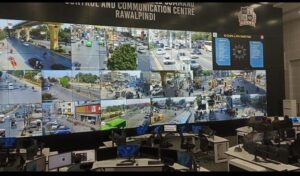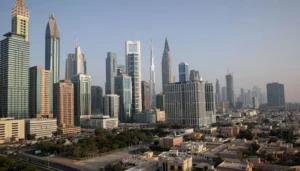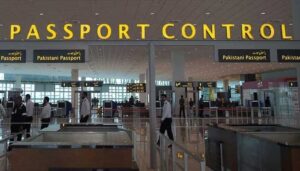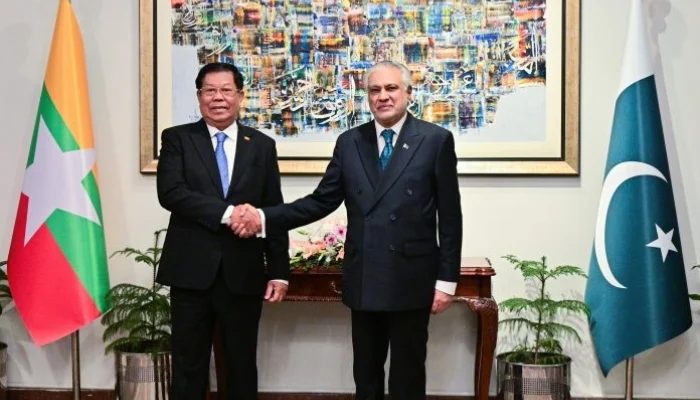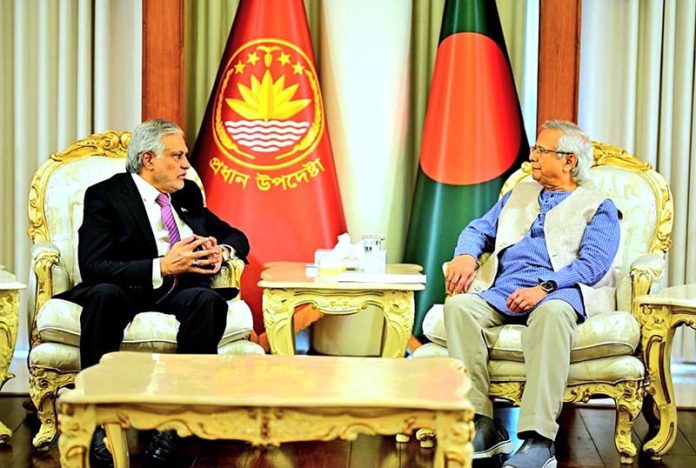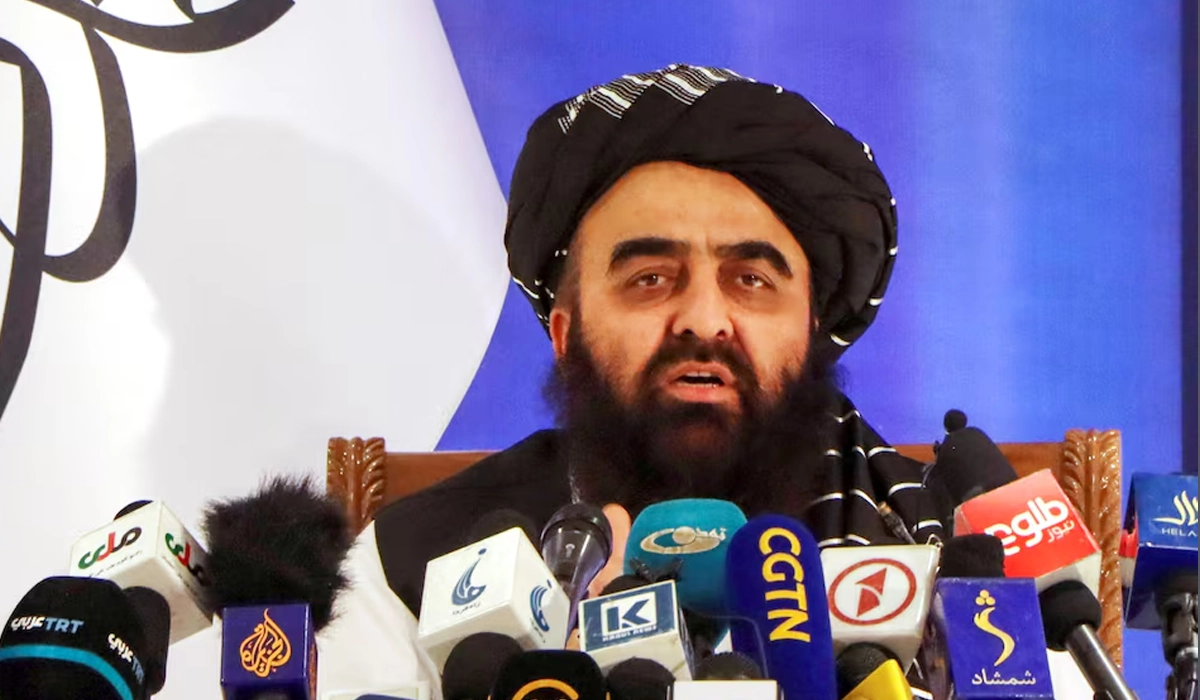
Global
Trump welcomes Saudi Crown prince to White House for high-profile visit
WASHINGTON: US President Donald Trump hosted Saudi Crown Prince Mohammed bin Salman at the White House on Tuesday, marking the crown prince’s first visit to Washington in more than seven years as the two sides work to strengthen strategic, defence and economic ties.
The Saudi leader received an elaborate reception on the South Lawn, featuring a military honour guard, cannon salute and a US Air Force flyover—protocol usually reserved for state visits. Trump welcomed him on the red carpet before the two leaders proceeded inside for formal discussions.
Talks between the two sides are focused on expanding security cooperation, advancing civil nuclear collaboration and finalising multibillion-dollar investment and defence agreements. US officials, however, said no major breakthrough is expected on the long-discussed Saudi move to normalise ties with Israel, despite Trump’s continued push for such an accord.
The visit highlights the resilience of a relationship that remains central to US foreign policy, even as the global backlash over the 2018 killing of journalist Jamal Khashoggi has eased. US intelligence agencies previously concluded that the crown prince had approved the capture or killing of Khashoggi at the Saudi consulate in Istanbul—a claim he denies, though he has accepted overall responsibility as the kingdom’s de facto ruler.
Trump and the Saudi Crown Prince were seen exchanging smiles as military personnel lined the White House perimeter, while the Saudi delegation arrived under the escort of a mounted army honour guard. Throughout the day, Mohammed bin Salman is scheduled to attend meetings in the Oval Office, join a working lunch in the Cabinet Room and attend a black-tie dinner in the evening. US and Saudi flags lined Pennsylvania Avenue for the visit.
A senior administration official said Trump aims to build on the $600 billion Saudi investment commitment made during his visit to Riyadh in May. New agreements under preparation include defence sales, civil nuclear cooperation, and a multibillion-dollar Saudi investment in US artificial intelligence infrastructure.
Trump told reporters on Monday that the US would proceed with the sale of F-35 fighter jets to Saudi Arabia—a major shift in policy that would make Saudi Arabia the first Middle Eastern country after Israel to operate the aircraft. Riyadh has requested 48 jets. The deal could reshape regional military balances and test Washington’s longstanding commitment to preserving Israel’s “qualitative military edge.”
Beyond defence deals, Saudi Arabia is seeking enhanced security guarantees from Washington. Analysts believe Trump may issue an executive order similar to the limited defence pact recently extended to Qatar, though still short of the NATO-style treaty Riyadh once sought.
Read More: 23 terrorists eliminated in two IBOs across KPK: ISPR
US Strategy: Countering China’s Influence
Dennis Ross, a former US Middle East negotiator, said the White House wants to ensure that Saudi Arabia remains firmly aligned with Washington.
“President Trump wants a multifaceted relationship that binds the Saudis to the United States across security, finance, AI and energy—and not to China,” he said.
Trump is also expected to renew pressure on Riyadh to join the Abraham Accords and normalise relations with Israel. However, Saudi Arabia has maintained that progress on Palestinian statehood is essential before any such step, a position reinforced by the ongoing Gaza conflict.
The Trump administration originally brokered the Abraham Accords in 2020 between Israel and Bahrain, the UAE, Morocco and Sudan, with Kazakhstan joining more recently. US officials say Saudi participation remains a key objective for Trump.
Jonathan Panikoff, former deputy national intelligence officer for the Middle East, said that while progress on normalisation may remain slow, broader security and investment cooperation is likely to continue.
“Trump’s desire for significant Saudi investment in the US—already promised by the crown prince—may create momentum for expanded defence ties even if normalisation advances more slowly,” he said.


